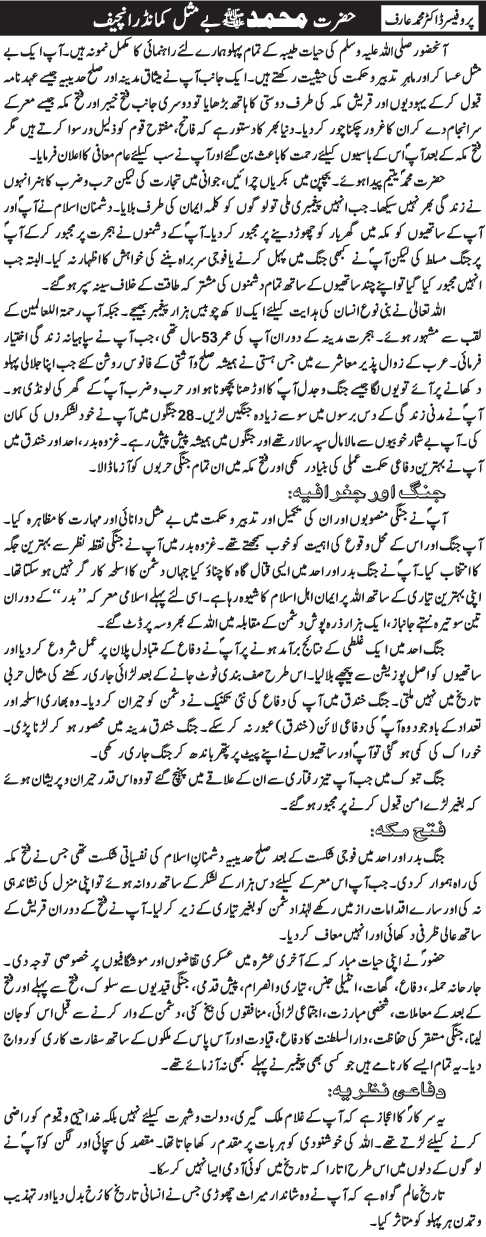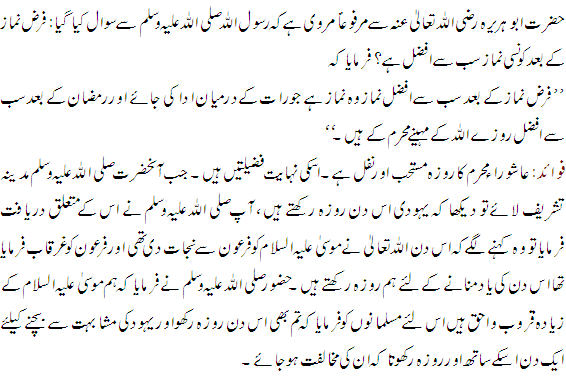All Praises is due to Almighty Allah SubHanuhu wa Ta’ala, Peace and Blessings be upon the most perfect of creations, His Beloved Habeeb, Sayyiduna Rasoolullah SallAllaho Alaihi wa Sallam his noble Family and the illustrious Sahaba Ridwanullahi Ta’ala Alaihim Ajma’een and all the pious servants of Almighty Allah SubHanuhu wa Ta’ala.
SACRIFICING ANIMALS
I. Hadrat Zaid ibn Arqam Radi Allahu Ta’ala Anhu reported that the companions of the Messenger of Allah SallAllaho Alaihi wa Aalihi wa Sallam asked:
“O Messenger of Allah! What is this sacrifice?” He said, “It is the practice of your father Abraham.” They asked, “What is the reward for us in it?” He said, “For every hair, you will be rewarded.” They asked, “for the wool, O Messenger of Allah?” He said, “For every strand of wool you will be rewarded.” [Sunan Ibn Majah, Vol. 1, Page 226, Hadith 3247]
II. Hadrat ‘Ayesha Radi Allahu Ta’ala Anha reported that the Messenger of Allah SallAllaho Alaihi wa Aalihi wa Sallam has said,
“On the day of sacrifice no one does a deed more pleasing to Allah than the shedding of blood. The sacrifice will come on the Day of Resurrection with its horns, its hairs and its hooves; and the blood finds acceptance with Allah before it falls on the ground.” [Sunan Tirmidhi, Vol. 1, Page 275, Hadith 1572]
III. Hadrat Hanash Radi Allahu Ta’ala Anhu reported:
I saw Hadrat ‘Ali sacrificing two rams. I asked him: “what is this?” He said, “The Messenger of Allah had enjoined me to sacrifice on his behalf; so I am sacrificing on his behalf.” [Mishkat, Page 128, Hadith 1642]
IV. Hadrat Abu Hurairah Radi Allahu Ta’ala Anhu reported that the Messenger of Allah SallAllaho Alaihi wa Aalihi wa Sallam has said,
“Such a person who had the ability and means to sacrifice an animal, but (despite this) he did not do so; should never come near our Eidgah (place where the Eid prayers are performed).” [Musnad Ahmad, Vol. 18, Page 27, Hadith 8496]
V. Hadrat Umm-e-Salmah Radi Allahu Ta’ala Anha reported that the Messenger of Allah SallAllaho Alaihi wa Aalihi wa Sallam has said,
“when you see the new moon of Dhul Hijjah and one of you intends to make sacrifice, he must not shave his hair, trim it, or clip his nails.” [Sahih Muslim, Vol. 2, Page 160, Hadith 5234]






![[Sahih Muslim : Book 35, Book Name Kitab Al-Dhikr Number 6593]](https://www.imanislam.com/images/dua/sahih-muslim_hadith2401.gif)
![[Sahih Muslim : Book 35, Book Name Kitab Al-Dhikr, Number 6594]](https://www.imanislam.com/images/dua/sahih-muslim-hadith2402.gif)
![[Sahih Muslim : Book 35, Book Name Kitab Al-Dhikr, Number 6595]](https://www.imanislam.com/images/dua/sahih-muslim-hadith2403.gif)









